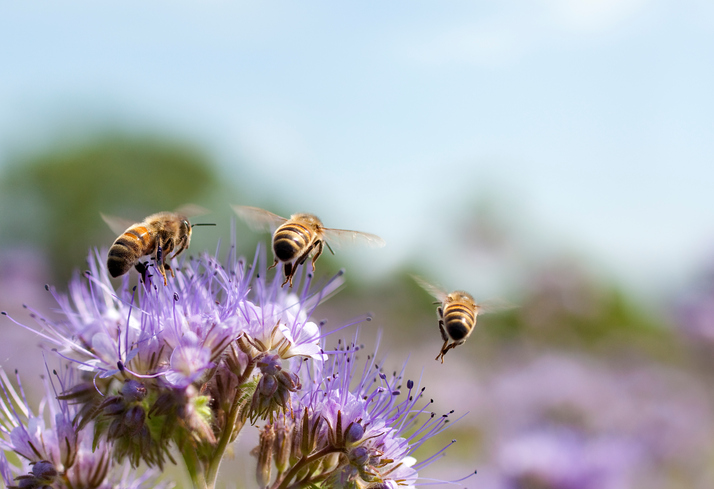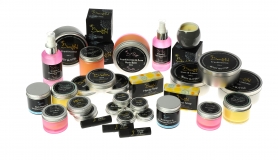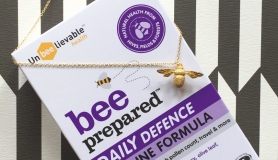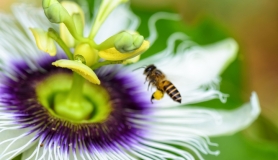Each year we hear of more bee deaths caused by new diseases and greater habitat loss. As one of earth’s major pollinator groups, their loss p[oses a serious threat to the plants that rely on them and in turn everything that relies on this e plants including us. The Bee Book (recently published by DK) shares the facts and figures behind this decline and what we can do about it.
MAIN CAUSES OF THE DECLINE
The relationship between bees and humans is fraught with contradiction. We rely heavily on their pollination services and vast amounts are spent trying to breed the perfect strain, yet continue with farming practices that place bees under ever greater pressure and have led to dramatic population declines. And bees aren’t the only group to suffer as this contributes to the loss of biodiversity generally.
MIGRATORY BEEKEEPING
Commercial pollination is big business across the world and nowhere more so than in the US, where the practice of growing vast swathes of single crop species leaves little room for wild pollinators. This agricultural model is supported by migratory beekeepers who move huge numbers of honey bee colonies great distances around the country from crop to crop. There is widespread concern that this mad transportation might be contributing to Colony Collapse Disorder (CCD).
MEGA-FARMING
The practice of farming in vast monocultures has had a doubly negative effect on wildlife, bees included. As traditional, small-scale farms disappear, so too do the diverse species adapted to live in these varied landscapes. And as the world population continues to grow, fed by ever-increasing crop yields. so expanding human settlements push further into previously untouched wildernesses.
PESTICIDE SPRAYING
Another hugely controversial change in farming has been the widespread use of pesticides. Pesticides, most notably DDT, are responsible for appealing damage to wildlife. They can have devastating consequences for ecosystem services, like pollination and human health.
WHAT WE CAN DO AS INDIVIDUALS
Small actions make big changes and each of us has a part to play in bee conservation. We can turn our balconies and gardens into pollinator paradises. We can volunteer on conservation projects and share our passion for bees with those around us.
PLANTING FOR BEE FORAGE
Bees prefer simply flowers. Flowers as they are found in the wild are most suitable. Have wild areas with ‘weeds’ growing. Aim to have something in flower all year round.
PROVIDING HABITATS
Some solitary bee species like to nest in dead tree branches and mining bees in patchy of bare earth. Hang dedicated bee and insect hotels from trees and shrubs.
JOIN A CAMPAIGN
Great things happen when individuals come together. Volunteers are always needed by the conservation sector to plant up habitats.
KEEPING BEES
Beekeeping is a rewarding hobby and a great way to learn more about the lives of bees. Check out the Natural Beekeeping Trust for more information and to meet ethical beekeepers in your area.







